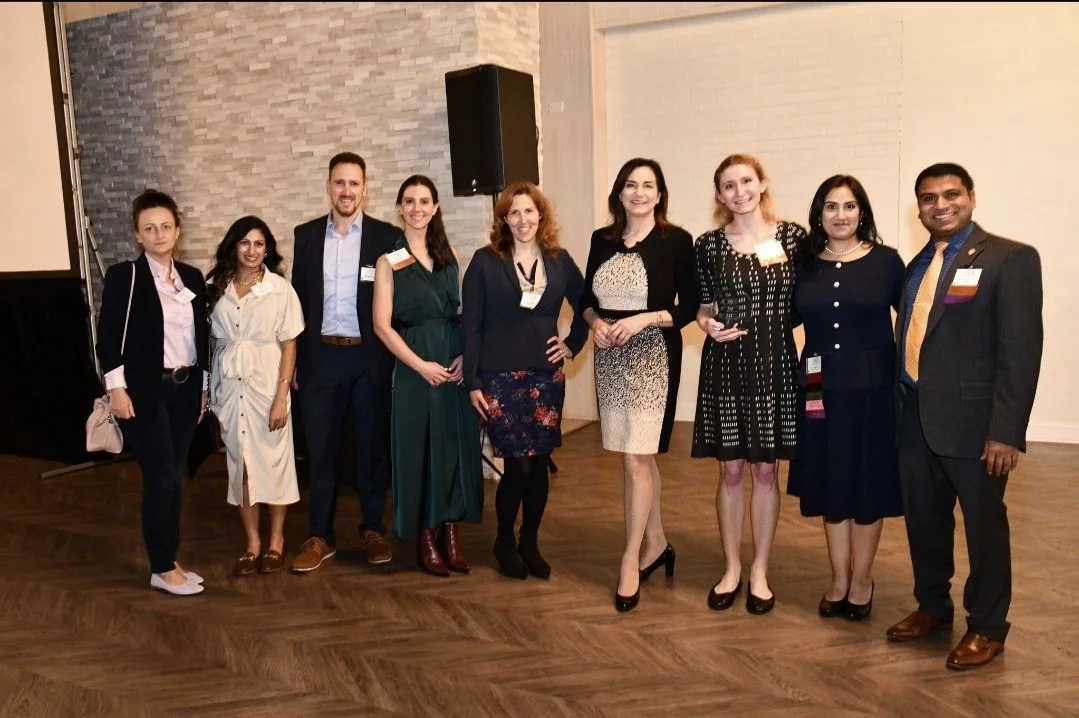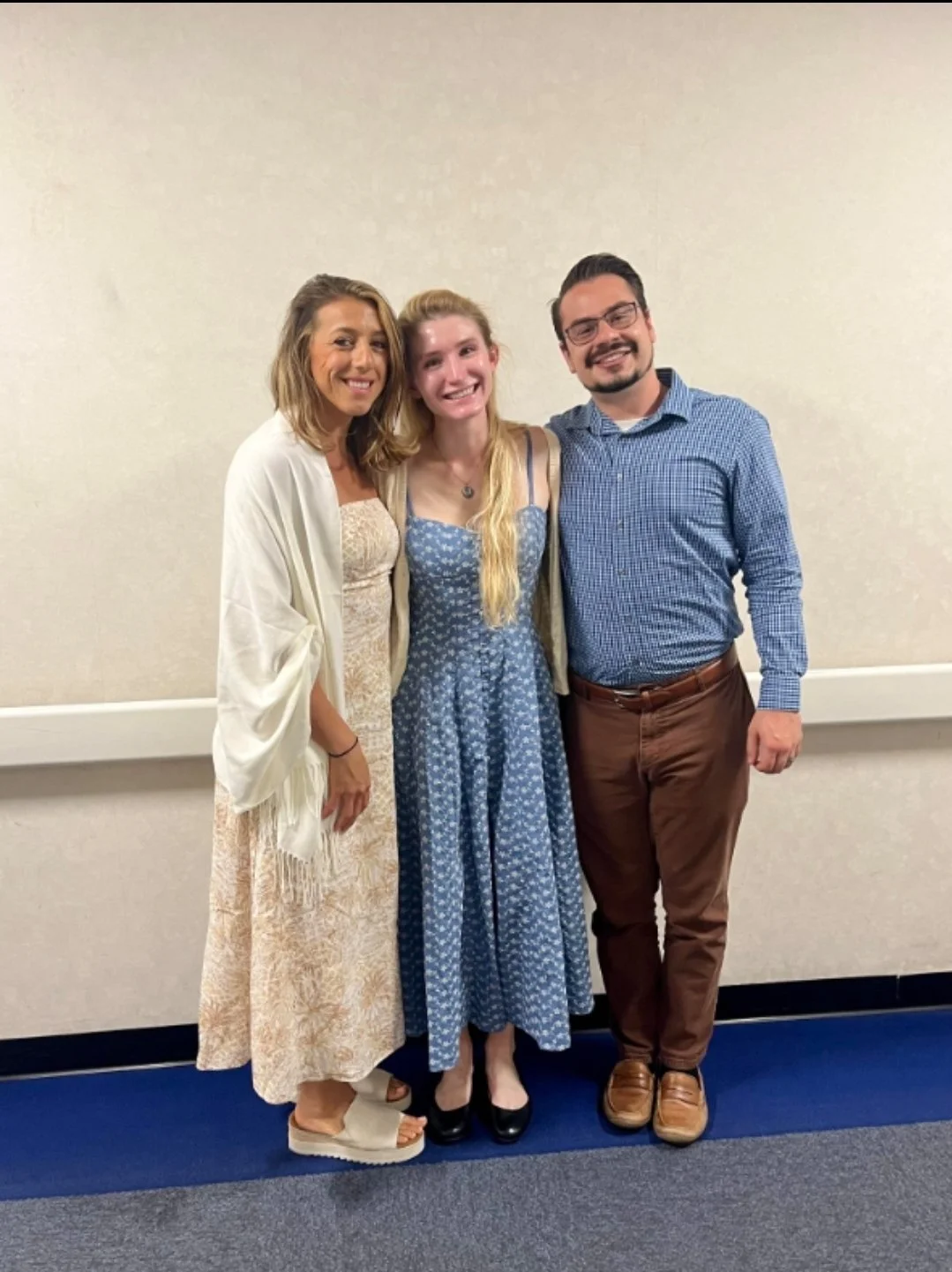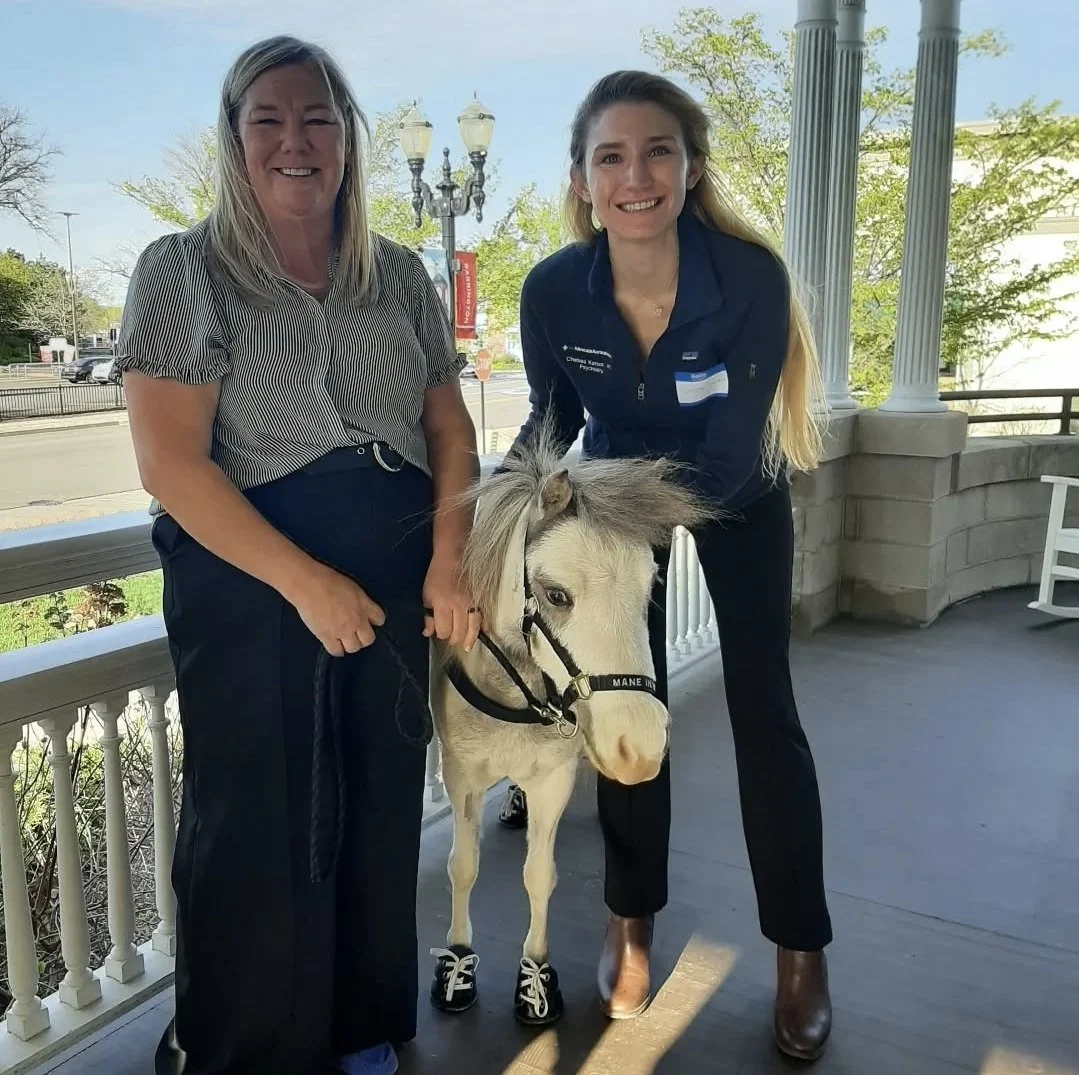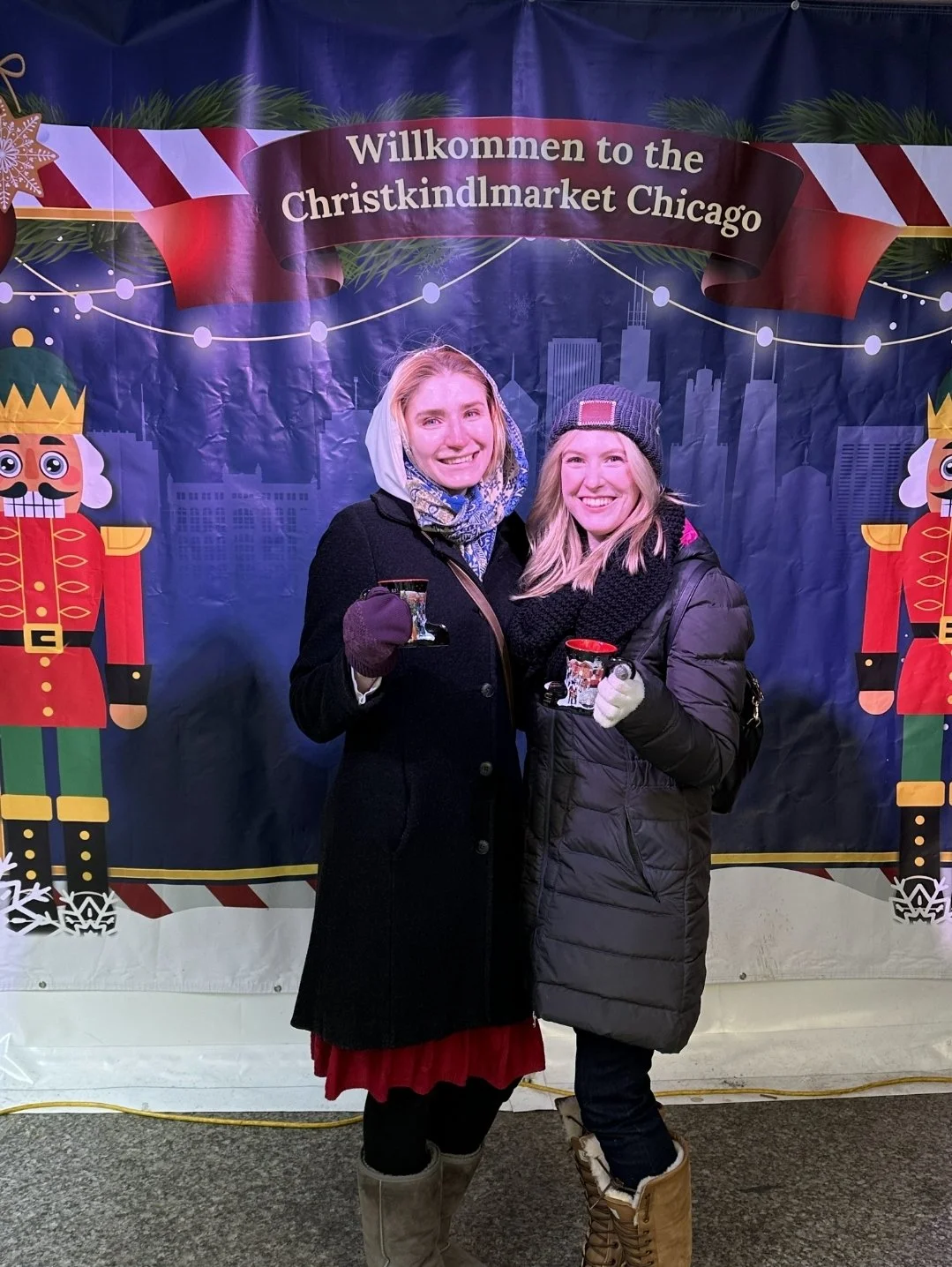Electronic Winter 2024 | Issue 61
Member Spotlight: Chelsea Karson MD
In this edition of the Member Spotlight, IPS ECP (Early Career Psychiatrist), Dr. Sudhakar Shenoy, interviews IPS ECP, Dr. Chelsea Karson.
Dr. Shenoy: Dr. Karson, thank you so much for taking the time to chat today! Let’s start from the beginning—what drew you to medicine, and how did you decide psychiatry was the right path for you?
Dr. Karson: Thanks for having me, Dr. Shenoy! Like many doctors, my journey to medicine began by seeing my family members live longer, happier, healthier lives because of doctors, nurses, and physical therapists. To a child, the healthcare professionals were superheroes. As I moved through school and entered college, I needed help determining what area of healthcare was the right fit. Fortunately, my college had a program that enabled me to shadow doctors, nurses, perfusionists, podiatrists, and more! After exploring those fields, I knew that I wanted to be a physician.
Dr. Shenoy: During your time at Advocate Lutheran General Hospital, you accomplished so much. What was it like being Chief Resident? Can you share a memorable moment or something you learned about yourself during that time?
Dr. Karson: Thank you! Advocate Lutheran General Hospital was a good place to learn, as both a resident and as Chief Resident. I was lucky to work with incredible coresidents and supportive attendings. Being Chief Resident gave me an opportunity to explore academic medicine, seeing what goes into organizing rotation schedules, didactic days, and mentorship. My residency training program sponsored my attendance to a Chief Resident Leadership Skills Training Program through the ACGME. I met over two dozen Chief Residents representing residency training programs ranging from family medicine to plastics from all over the country. Every Chief resident was different. The Skills Training Program used personality tests and exercises to help us recognize our common qualities and truly appreciate our different style of leadership and problem solving. I learned so much about teamwork and brought a few exercises back to my own program. It was a rare opportunity to meet so many residents from so many places and study leadership, a topic outside of medicine! The experience reinforced the importance of camaraderie among physicians and reminded me that part of being a doctor is being a leader.
Dr. Shenoy: It’s wonderful to hear about those experiences! Can you also walk us through how the initiative for miniature therapy horses came about? What was the reaction from patients and staff when this was introduced?
Dr. Karson:
Mane in Heaven is a wonderful organization! Everything started with my mother. When I was a third year medical student. She was working in the office at the farm where Mane in Heaven trains and cares for the miniature therapy horses. The leaders of Mane in Heaven were looking for volunteers to help with a few training exercises. My mom saw volunteering as an opportunity to help me take a break from studying. Once I met the horses and volunteers, I knew I wanted to work with their organization. Animals can connect with people in a unique and special way that even a great therapist is unable to replicate. After matching with my residency training program, I quickly found support from my attending psychiatrists and other team members. The wonderful volunteers of Mane in Heaven were enthusiastic partners! After a couple of years, they were able to begin regular visits to our inpatient unit and every Advocate Aurora Healthcare location. One of my favorite parts of the visits was to see the reaction of the patients and staff when they met the miniature therapy horses. It gave the patients and staff a fun, shared experience. How many people meet a miniature horse wearing tiny, custom gym shoes in a hospital? There was almost always laughter and happy conversation, sounds we don’t always get to hear from patients receiving care on an inpatient unit. The horses are trained to be friendly and affectionate. The volunteers are excellent, answering questions and encouraging participation. My other favorite part of the visits was seeing the sickest patients connect with the miniature therapy horses. One memory that stands out was seeing a recently catatonic patient walk with the miniature horses and smile. It was incredibly powerful!
Dr. Shenoy: That’s truly fascinating! You also created the Bridge Project to improve continuity of care for patients. What challenges were you trying to address with this program, and what do you think made it so successful?
Dr. Karson: The Bridge Project was developed to “bridge the gap” between inpatient and outpatient care. My partner in the Bridge Project, Mary Abo, was a mental health counselor, working on the inpatient psychiatry unit where I was a resident. We often collaborated in patient care. The Bridge Project came about organically when we were trying to find resources for patients who were uninsured or underinsured and did not have much support.
The Bridge Project started out as a method to take advantage of free resources we found online or that we created, using technology to enhance therapy. Soon, it became an archive of resources for psychoeducation, 1:1 therapy, outpatient, and more! We quickly had requests from other Advocate Aurora Health locations and healthcare specialties. I think the Bridge Project became successful because it is easy to use. Mary and I recognized that our resources needed to be convenient and straightforward for both patients and healthcare workers to gain the most benefit.
Dr. Shenoy: I’m glad to hear that you’ve had such rich experiences! For early career psychiatrists who want to follow in your footsteps, what advice would you offer about creating impactful initiatives like the Bridge Project or simply finding their unique voice in the field?
Dr. Karson: My advice to early career psychiatrists is to listen to their patients and collaborate with their team members. Most of my ideas and projects began as conversations. Patients communicate what they need, sometimes through words, other times by returning to the unit. Once that need is identified, bring it to your coresidents, attendings, and team members, then work together to create something new to help the patients! None of my projects would have succeeded if I was working alone. Some of my favorite memories are of working on the Bridge Project with Mary Abo and talking through ideas with my coresidents. Psychiatry is a group activity!
Dr. Shenoy: Speaking of early career, I’d like to shift gears a bit to ask about your current practice—what led you to join Talkiatry? What excites you about practicing outpatient psychiatry through a telehealth platform, and how do you balance the challenges of virtual care with creating meaningful connections with your patients?
Dr. Karson: The job hunt was a bit overwhelming for me at times! I had hoped to find a position with a balance of inpatient, outpatient, and TMS or ECT. Life had other plans! After months of looking for something, I decided to explore telehealth as I wanted to be close to my family and friends. Telehealth also gave me the ability to care for patients in other states and reach patients in remote areas. I love the flexibility that telehealth gives patients, too.
Creating meaningful connections is easy! My patients are often in their homes or where they work. I often meet my patient’s pets and young children during our visits. One patient showed me a holiday wreath she made for her front door. Another held her framed diploma up to the camera, showing me that she had successfully graduated from her program, a major accomplishment! The therapeutic relationships I have been able to build with my telehealth patients are just as strong as those I forged seeing patients face to face.
Dr. Shenoy: I know that you were also involved in the Illinois Psychiatric Society while you were in residency and now continue to be involved as an ECP. I was wondering how you feel IPS has supported you thus far and can now support you early in your career as an attending?
Dr. Karson: I would encourage every resident to join the IPS and get involved. The IPS has supported me through mentorship, camaraderie with my fellow ECPs and more established psychiatrists, and connected me to resources and opportunities too. My IPS mentors talked through clinical challenges with me when I was a resident, gave me invaluable advice when I was Chief Resident, and helped me navigate the job market. The ECP group chat introduced me to one of my closest friends! Psychiatry is an amazing field, but also a challenging one. Knowing I have a group chat of ECPs on my phone is a source of confidence! By joining the IPS, I have participated in conferences, lectures, and published some of my creative writing, too. The annual IPS meeting was so much fun and a great place to meet and learn from leaders in our field. I look forward to the Mind Matters e-newsletter every quarter, reading about psychiatry in Illinois from psychiatrists in Illinois! The IPS has been a strong source of knowledge, fellowship, and connection, both during my residency and now as an attending.
Dr. Shenoy: Finally, when you’re not wearing your professional hat, what do you enjoy doing to unwind or recharge? Any hobbies or activities that keep you grounded?
Dr. Karson: My friends and family help me recharge. My mom and dad taught me to nurture plants in our backyard when I was a child. Now, I have a mix of snake plants, succulents, and flowers surrounding the desk where I work. I had a great pollinator garden on my balcony until the cold weather came! When I feel overwhelmed or exhausted, I go for long walks in forest preserves with my parents and spend hours at parks or running around play places with my niece and nephew. They are barely school aged and my favorite people! My family helps me stay grounded.
I like to explore museums and events in the city on weekends and track down seasonal activities in the suburbs. During October, I visited a pumpkin farm with a good friend and fellow ECP member! We braved a haunted house and navigated a corn maze. It was a great day! Not long after Thanksgiving, a close friend and I went to the Christmas Market, then saw the Chicago Symphony Orchestra perform the soundtrack to the Wizard of Oz while the film played on a giant screen at the Chicago Symphony Center. I call these outings “adventures.” The time and fun we share is fuel for long days spent caring for patients.







